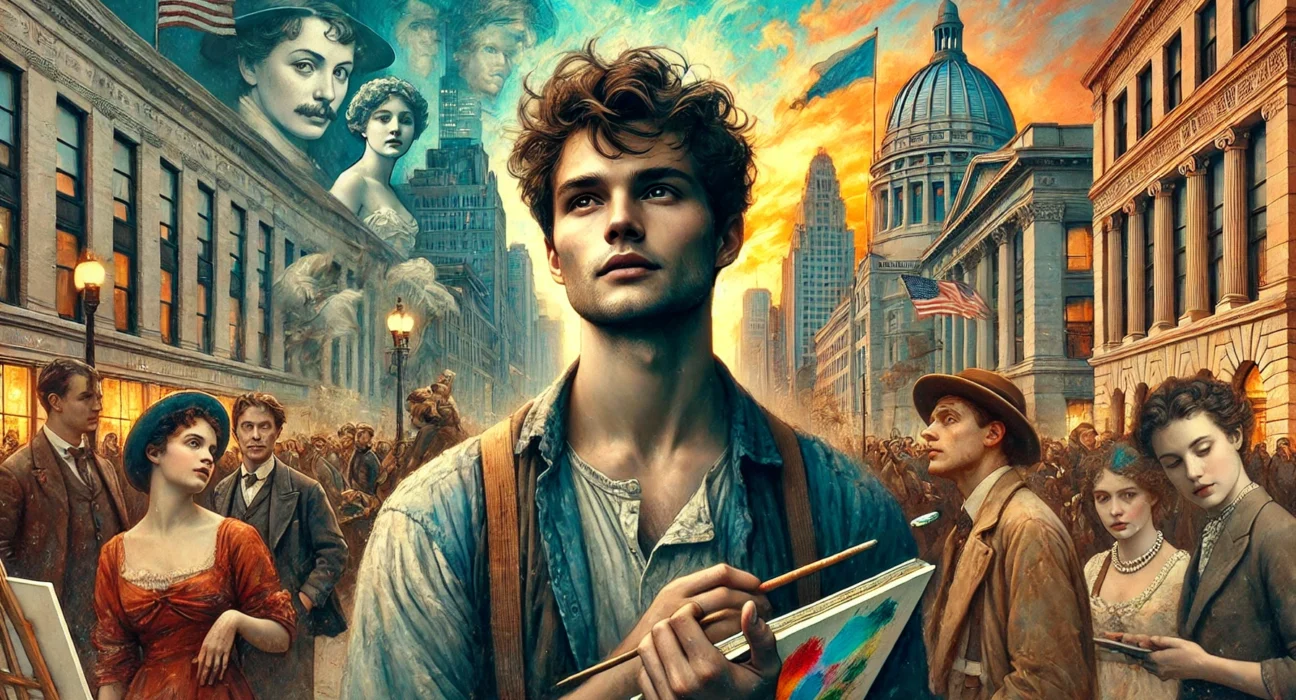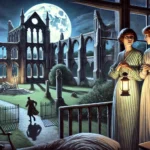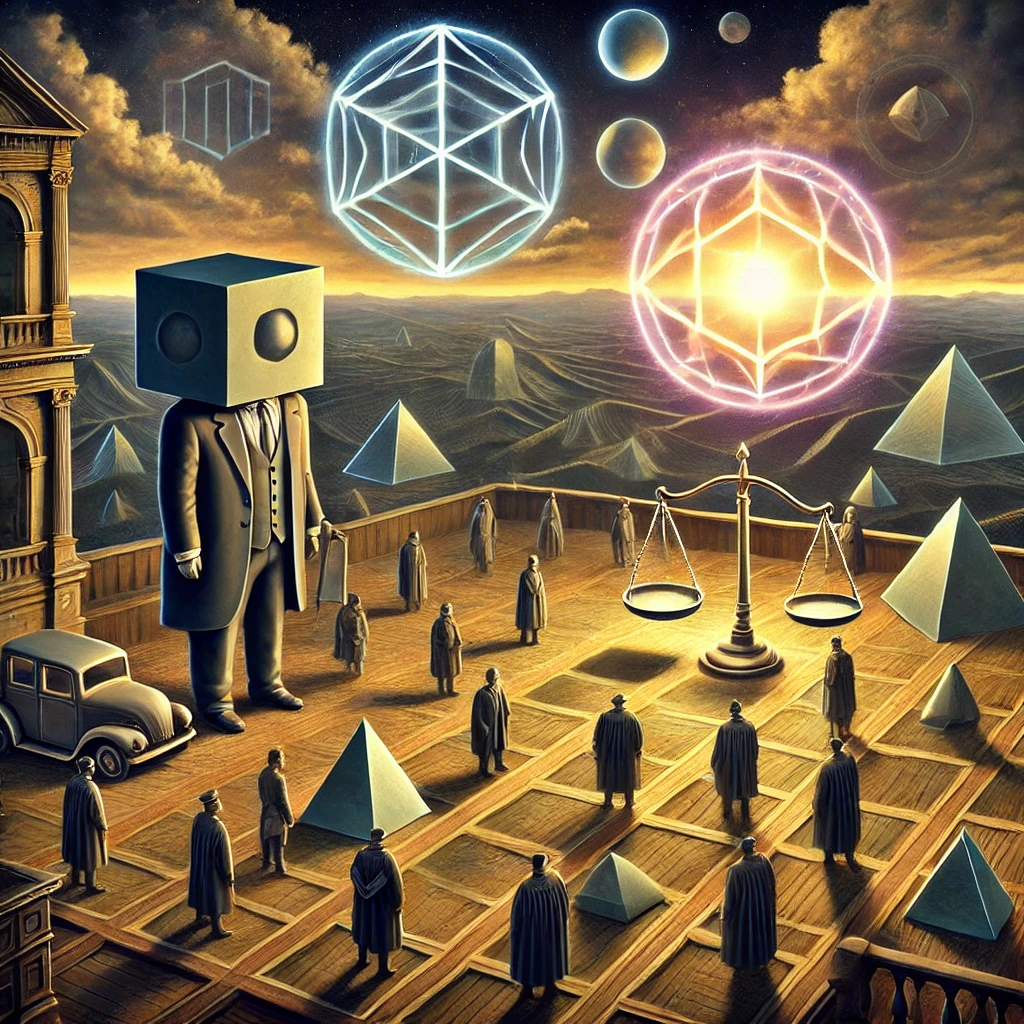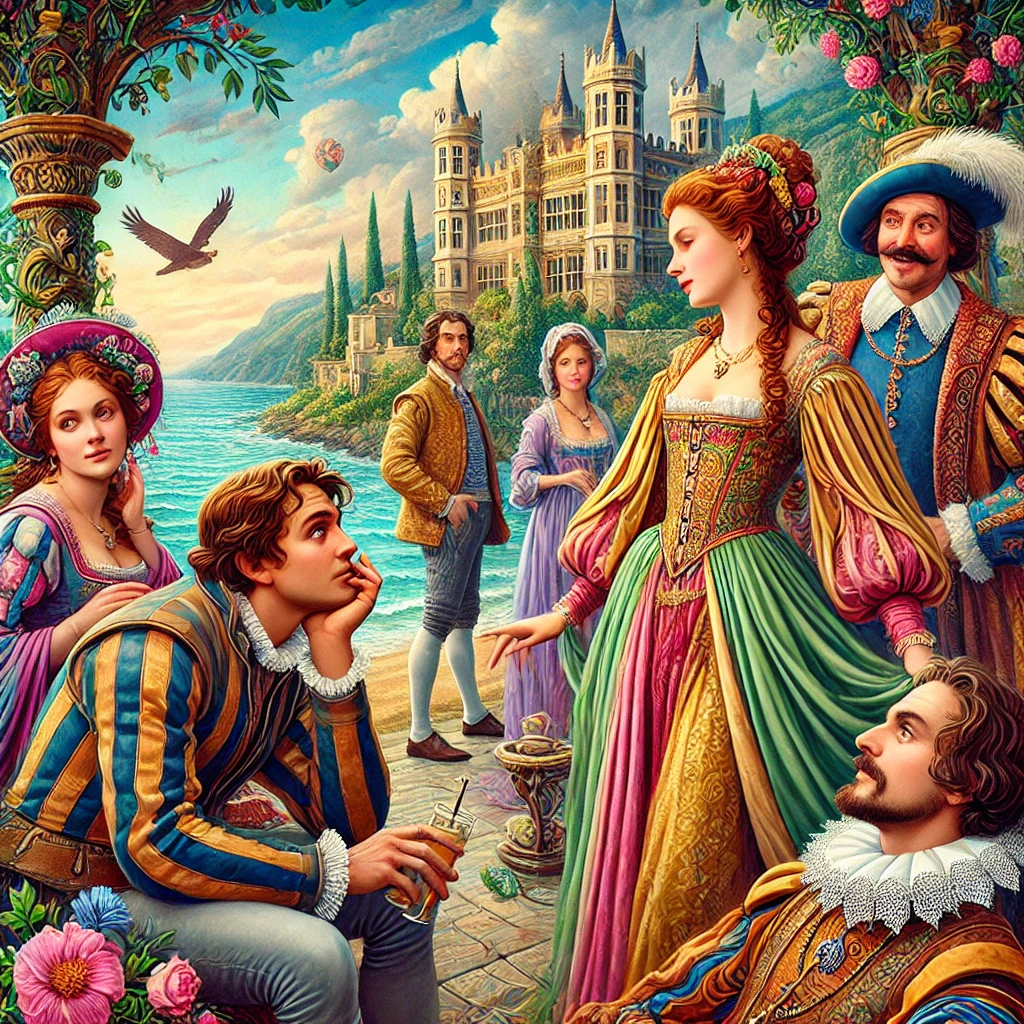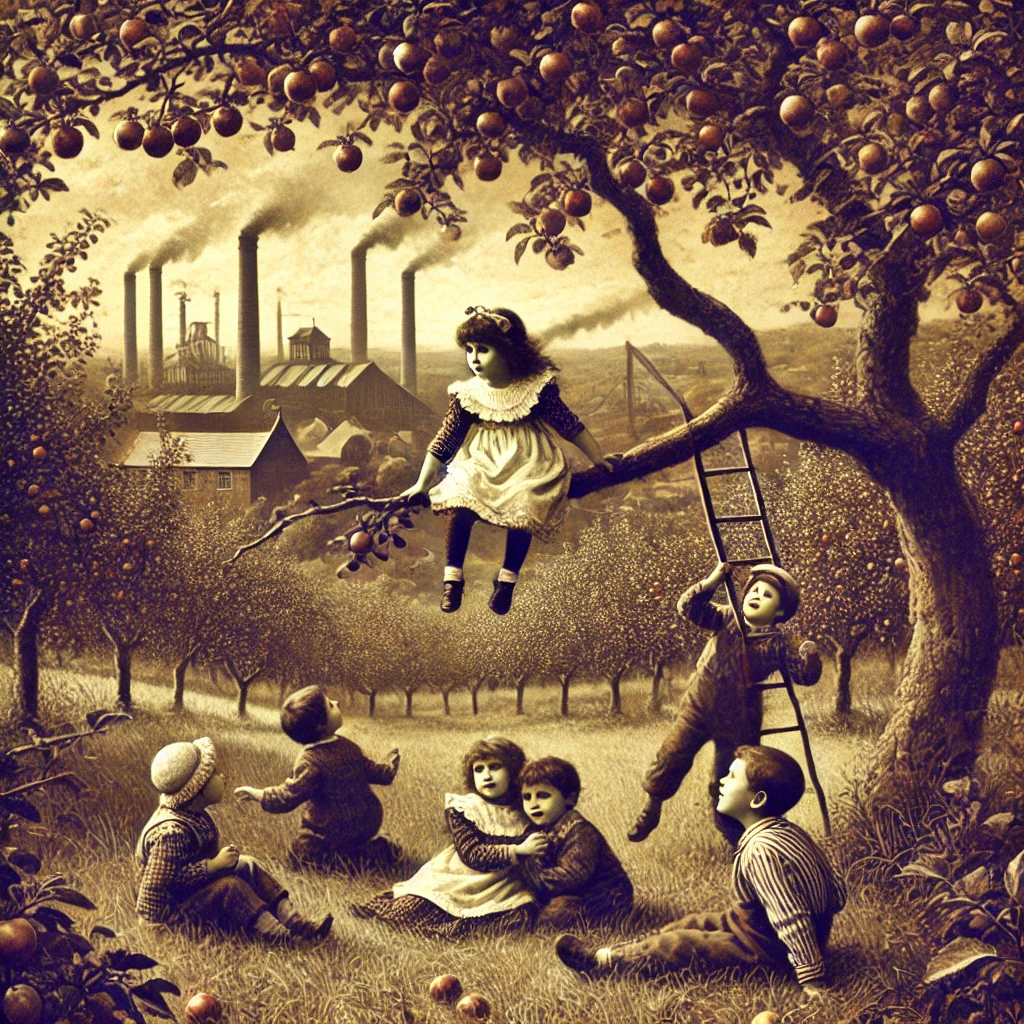The Genius by Theodore Dreiser, published in 1915, is a biographical and literary fiction novel that delves into the life of Eugene Witla, a young man with artistic aspirations. Dreiser, a pioneer of the naturalist literary movement, presents Eugene’s journey through his personal ambitions, artistic struggles, relationships, and the consequences of his actions. Set against the backdrop of late 19th-century America, the novel explores the pursuit of success and the inner conflicts of a sensitive, talented individual.
Plot Summary
Eugene Witla grew up in the small town of Alexandria, Illinois, the son of Thomas Witla, a sewing machine agent, and Miriam Witla, a poetic and reserved woman. From a young age, Eugene felt detached from the practical world of his father’s business. He had no interest in the sewing machines or insurance work that sustained the family. Instead, he found solace in art, literature, and his own dreamy thoughts. His curiosity about life in the big cities and his longing to escape the monotony of small-town life filled his days with wonder and restlessness.
As a teenager, Eugene was moody and introspective, often feeling disconnected from those around him. His beauty and aloofness made him the object of fascination for many girls, but he struggled to engage with them. That changed when he met Stella Appleton, a radiant and flirtatious girl his own age. She stirred something profound in Eugene, awakening both his passion and his insecurities. They began to spend time together, skating under moonlit skies and sharing moments of closeness. But Stella, with her carefree attitude and ability to charm other boys, left Eugene constantly questioning her affection. He was consumed by jealousy and self-doubt, never quite able to bridge the emotional distance between them.
Eugene’s infatuation with Stella was short-lived, as her interest waned, and she drifted towards another boy. Their relationship fizzled out, leaving Eugene devastated. Heartbroken and increasingly dissatisfied with the limited prospects in Alexandria, he resolved to leave his hometown behind. The lure of Chicago—a city alive with opportunity and excitement—drew him in. With a small amount of money in his pocket and a heavy heart, Eugene packed his things and boarded a train to the city, leaving behind his family, his unrequited love, and the simple life he had known.
Upon arriving in Chicago, Eugene was awestruck by the vastness of the city. The endless rows of buildings, the noise of industry, and the bustle of people fed his imagination. He found a cheap room and began to carve out a life for himself. He found work in a commercial art studio, where he learned the technical aspects of art, though he yearned to break free from the confines of advertisement work. His talent and ambition set him apart, and soon he was drawn into the bohemian world of artists and intellectuals, a circle that both inspired and challenged him.
As Eugene’s artistic career began to take shape, so did his romantic entanglements. He became involved with Angela Blue, a sophisticated older woman, and their relationship was marked by both passion and conflict. Angela, drawn to Eugene’s youthful idealism, provided him with financial and emotional support, but their relationship was plagued by Eugene’s growing restlessness. His ambitions as an artist often clashed with the stability that Angela offered, and as Eugene’s fame slowly grew, so did his sense of entitlement and his dissatisfaction with the life he had built.
Eugene’s rise as an artist brought him into contact with influential figures, opening doors to galleries, exhibitions, and society events. But as his success grew, so did the complexity of his relationships. He met Suzanne Dale, a younger, more naive woman who admired Eugene’s work and was captivated by his charm. Their affair became another outlet for Eugene’s restless desires. Torn between his feelings for Angela and Suzanne, Eugene began to spiral into a moral and emotional crisis. His relationships were no longer simple; they were tangled with guilt, power, and manipulation.
The demands of his career took a toll on his relationships. Angela, sensing the shift in Eugene’s affections, confronted him about Suzanne, but Eugene, consumed by his own desires and self-interest, could not bring himself to end the affair. Suzanne, unaware of the full extent of Eugene’s duplicity, believed she was in love with a man who could offer her a life of excitement and artistic brilliance. As Eugene’s personal life grew increasingly complicated, his art continued to flourish, but he began to question whether the success he had achieved was truly fulfilling.
Amid this turmoil, Eugene’s relationship with his family deteriorated. The distance between him and his parents grew as he became more immersed in his career and the world of high society. Visits home became less frequent, and when he did return to Alexandria, he found the town stifling and his family unable to understand the changes he had undergone. The simplicity of their lives contrasted sharply with the complexities of his own, and Eugene found himself drifting further away from the values he had once held.
In the end, Eugene’s relentless pursuit of success came at a cost. His relationships with both Angela and Suzanne collapsed, leaving him isolated and emotionally drained. Angela, after years of supporting Eugene and enduring his betrayals, finally severed ties with him. Suzanne, too, realized the hollowness of their affair and walked away, leaving Eugene to confront the emptiness of his achievements. The fame and recognition he had worked so hard to attain no longer brought him joy. His once-burning ambition had consumed him, leaving behind only regret and a sense of loss.
As he stood on the precipice of his life, Eugene was forced to reckon with the choices he had made and the people he had hurt along the way. His journey, which had begun with such promise and hope, had led him down a path of disillusionment and sorrow. In the end, he realized that the success he had chased so fervently had come at the expense of the things that truly mattered—love, family, and personal integrity.
Main Characters
Eugene Witla: The protagonist, Eugene is a young man with dreams of becoming an artist. He is introspective, sensitive, and often moody, struggling with the direction of his life. Throughout the novel, Eugene experiences growth through his relationships and artistic career, but he also grapples with deep internal conflict, particularly around love and ambition.
Thomas Jefferson Witla: Eugene’s father, a sewing machine agent, is practical and hard-working. He has modest ambitions for his family and tries to guide Eugene towards a stable career, though he struggles to understand his son’s artistic nature.
Miriam Witla: Eugene’s mother, supportive and loving, she has a poetic side. While she may not fully understand Eugene’s ambitions, she sympathizes with his sensitivities and is protective of him.
Sylvia Witla: Eugene’s older sister, Sylvia is traditional and focused on marriage and family life, embodying a simpler, more conventional path than her brother.
Stella Appleton: A significant figure in Eugene’s early romantic life, Stella is a beautiful and flirtatious young woman who catches Eugene’s eye. Their relationship highlights Eugene’s romantic idealism and emotional vulnerability.
Theme
Art and Ambition: Central to the novel is Eugene’s struggle with his artistic talent and the drive to make something of himself. Dreiser explores the tension between personal ambition and the societal and familial pressures that pull Eugene in different directions.
Love and Relationships: Eugene’s relationships, particularly with women, play a key role in shaping his emotional and artistic journey. The novel explores the complexities of romantic desire, unrequited love, and the impact of personal connections on one’s aspirations.
Individualism vs. Society: Dreiser examines the conflict between Eugene’s desire for personal freedom and the expectations placed upon him by society, family, and the practicalities of life. This theme reflects the broader American ideals of self-reliance and success but critiques the emotional toll they can take.
The American Dream: The novel critically engages with the notion of the American Dream, suggesting that the pursuit of success, whether in art or commerce, can be both inspiring and destructive. Eugene’s journey represents the often harsh realities behind the idealized vision of success.
Writing Style and Tone
Theodore Dreiser’s writing in The Genius is characterized by a detailed, realist style that delves deeply into the psychological and emotional landscapes of his characters. His prose is dense and descriptive, often painting vivid pictures of the settings, from small-town America to the bustling cityscapes. Dreiser’s naturalist approach—observing characters as products of their environment and biology—allows for an intimate exploration of Eugene’s internal struggles, desires, and failings. The narrative is contemplative and slow-moving, reflecting the internal processes of the protagonist as he navigates life.
The tone of the novel is reflective and often somber, mirroring the protagonist’s struggles with purpose, relationships, and self-worth. Dreiser’s moral ambiguity towards his characters, particularly Eugene, creates a tone that is neither celebratory nor condemnatory but presents life as a complex and often tragic series of events and choices. There is a pervasive sense of yearning throughout the novel, particularly in Eugene’s quest for fulfillment, which drives both the tone and the narrative forward.
We hope this summary has sparked your interest and would appreciate you following Celsius 233 on social media:
There’s a treasure trove of other fascinating book summaries waiting for you. Check out our collection of stories that inspire, thrill, and provoke thought, just like this one by checking out the Book Shelf or the Library
Remember, while our summaries capture the essence, they can never replace the full experience of reading the book. If this summary intrigued you, consider diving into the complete story – buy the book and immerse yourself in the author’s original work.
If you want to request a book summary, click here.
When Saurabh is not working/watching football/reading books/traveling, you can reach him via Twitter/X, LinkedIn, or Threads
Restart reading!


